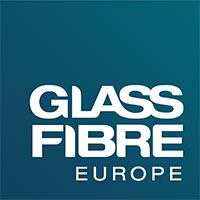On 06 February, the European Commission proposed a climate target of a 90% reduction in net greenhouse gas (GHG) emissions by 2040 compared to 1990 levels. This target will require an unprecedented transformation of our society and economy in less than two decades.
In response to this ambitious proposal, the energy-intensive industries, including the glass sectors, have issued a joint reaction. Central to the joint statement is the call for the European Commission to work on an ambitious industrial policy that facilitates a viable and solid business case for the climate transition. As Europe charts its course toward climate neutrality, it is imperative to fortify the industrial foundation for clean technology.
For the continuous filament glass fibre industry, ensuring a level playing field on the European market is paramount to preserving domestic production and attracting the necessary investments. Cédric Janssens, Secretary General of Glass Fibre Europe, emphasized the industry’s desire to support the climate neutrality objective, stating, “Our European industry wishes to continue supporting Europe’s climate neutrality objective. We want to lead innovation, to provide solutions for the transition across key sectors and to reduce the carbon footprint of our products. Europe needs a robust business case for the substantial investments required. To our industry, it starts with restoring a level playing field on the EU market with effective measures.”.
In addition to restoring a level playing field, the energy intensive industries have identified several other key enabling conditions to achieving the proposed climate targets. These include These include public support for research and development (R&D) efforts and the deployment of advanced manufacturing technologies, access to competitively priced alternative energy sources, and the development of requisite infrastructures. Find more on the energy-intensive industries’ statement below.


